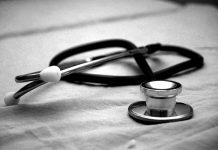Lung cancer is the second most common cancer according to World Health Organization data and accounts for 25% of oncological diseases of other organs and systems. Given the ecological and industrial situation in the world, almost anyone can get lung cancer, but smokers are identified among the most-at-risk group.
Despite the frequent occurrence of this pathology, lung cancer responds well to treatment, the main thing in this matter is the timely visit to a doctor and high-quality diagnostic.
Lung cancer signs and symptoms
Most often, the early stages of lung cancer may not manifest themselves. As a result, patients are more likely to consult a doctor at the later stages, when treatment and diagnostics are hampered significantly.
Here are some of the symptoms that are more characteristic for stage II-III, which should alert you and make you immediately consult the physician:
- Wheezing, shortness of breath.
- Chest pain.
- Wet cough with and admixture of blood in sputum.
- Unusual hoarseness.
- Loss of appetite and, as a result, weight loss.
- A persistent cough that is not treated with antibiotics and other kinds of treatment.
- Weakness and fatigue.
- Sweats at night.
- Subfebrile temperature, especially in the evening.
You can have one of them or all and it does not always mean that you have lung cancer. But you need to see a doctor as soon as possible for a diagnosis.
Diagnosis of lung cancer
The main purpose of diagnostic is to determine the morphological type of the tumor, as well as the extent of the tumor spreading. It is necessary to spot the stage of cancer.
The main diagnostic methods are:
- MRI or CT. These methods allow determining the extent of the lesion, as well as the tumor spreading beyond the lung.
- Bronchoscopy with histological examination. The method allows determining the growth of the tumor inside the bronchi.
- Histological or cytological examination. This method shows the morphological picture of a tumor. It serves for determining the type of cancer.
There are two main types of lung cancer: small cell lung cancer and non-small cell lung cancer. The type of tumor cells tells doctors what kind of treatment to chose.
Diagnostic of lung cancer in Germany allows revealing the exact cause of pathology and efficient treatment planning. For foreigners, it will be easier to undergo treatment of lung cancer in Germany with the assistance of Booking Health. Booking Health is the medical tourism provider with international ISO certification that offers check-ups and treatment in the best hospitals in Germany along with help in:
- Solving all organizational issues such as the selection of a specialized clinic.
- Making the appointment for diagnostics and doctor’s consultation.
- Preparing the preliminary programs for diagnosis making.
- Excluding overpricing and additional coefficients for the foreigners (saving up to 50% of total cost).
- Control of invoices and final calculation.
- Keeping in touch with the clinic after treatment.
- Booking the flight, transfer, room in the clinic for the patient himself and, if necessary, booking an apartment for relatives.
- Highly qualified interpreter selection.
- Full follow-up of the patient during treatment.
Types of treatment
The tactics of lung cancer treatment depend mainly on the type of disease specialists are dealing with and how far the malignant tumor has spread. In addition, when choosing a treatment method, the general condition of the patient, concomitant diseases and the functional state of the lungs are taken into account.
People with non-small cell lung cancer can be treated with immunotherapy, one of the new and highly effective treatments. In recent years, it has been a fairly common treatment of lung cancer in Germany. Immunotherapy is believed to significantly improve progression-free survival rates. Other possible options are surgery, radiation therapy, targeted therapy, or a combination of these treatments.
People with small cell lung cancer are more often treated with the help of radiation and chemotherapy.
Nevertheless, the main treatment method of lung cancer is surgery. Surgery in Germany is based on the maximum preservation of viable lung tissue. This is possible due to modern technical equipment and highly professional doctors. For instance, thoracotomy with segmental resection significantly improves the quality of life of the patient in the postoperative period and contributes to a quick rehabilitation, as well as a quick return to the normal rhythm of life.






